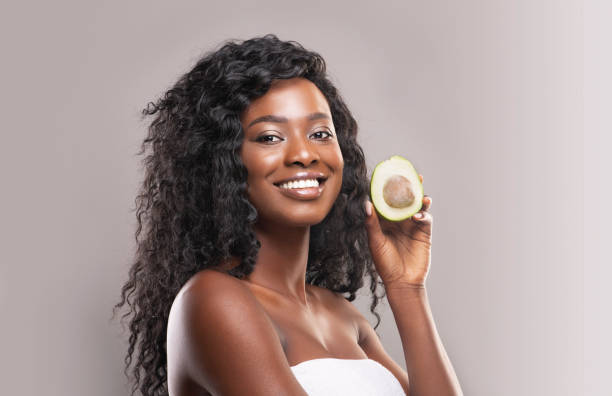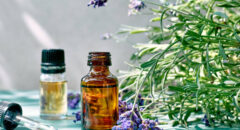
When it comes to healthy skin, what you put into your body can be just as important as what you use on it. Though researchers continue to finalize all the links between what people eat and their overall health, a few things are clear - certain vitamins and minerals can have a profound effect on the skin. All you have to do is tweak your diet and reap the benefits of fabulous skin.
RELATED: 5 Easy Ways to Spring Clean Your Skincare Routine
The Best Foods For Healthy Skin
All of these foods have multiple health benefits so you won’t just be making your skin happy. Here’s what you should be including in your diet.
1. Fermented foods and beverages
These foods are rich in probiotic bacteria, which encourage the growth of healthy microorganisms in the gut and boost the immune system. This in turn can help with chronic skin conditions such as eczema, psoriasis, and rosacea. Some examples of fermented foods are yogurt, kombucha, kefir, sauerkraut, kimchi, and pickles.
2. Fatty fish
Fish like salmon, mackerel, and herring contain omega-3 fatty acids, which are great for keeping skin moisturized. These fats also have anti-inflammatory properties so you’re less likely to deal with acne and other skin issues that develop from inflammation.
3. Avocados
This tasty food is a good source of Vitamin E, which is an antioxidant that protects your skin from oxidative damage. There is also some evidence that there are compounds in avocados that protect the skin from sun damage.
4. Dark red fruits
Blackberries, blueberries, strawberries, and plums have high antioxidant content that has been shown to protect the skin from damage.
5. Low-Fat dairy products
The important component in these foods is Vitamin A. This vitamin is an antioxidant that can help to protect your skin from sun damage as well as encourage skin repair.
6. Walnuts
These nuts are another excellent source of omega-3 fatty acids.
7. Sweet potatoes, oranges, carrots, and spinach
These foods are a great source of beta carotene, which gets converted easily into Vitamin A in the body.
8. Broccoli
This vegetable contains zinc, Vitamin A, and Vitamin C. Zinc is essential to helping your skin heal from injuries. Broccoli also has special compounds known as lutein and sulforaphane, which show promise for protecting your skin from sun damage.
9. Wholewheat products
This includes bread, muffins, or cereals so it should be easy for you to get more wholewheat in your diet. These products contain selenium, which plays a role in keeping skin cells healthy and protecting your skin from sun damage.
10. Red or yellow bell peppers
Bell peppers are another great source of beta carotene as well as Vitamin C.
11. Eggs
These are a great source of protein, Vitamin A, Vitamin E, selenium, and zinc.
12. Extra virgin olive oil
You can get healthy fats and Vitamin E from this oil.
13. Tomatoes
Apart from Vitamin C, tomatoes contain beta carotene, lutein, and lycopene, all of which protect your skin from sun damage.
14. Green tea
This beverage has been found to contain several antioxidants that can protect your skin from sun damage.
15. Red grapes
These fruits are a great source of antioxidants, but they also have a compound known as resveratrol. This compound has been shown to protect your skin from damage and reduce the signs of aging.
RELATED: Great Places to Find Quality Skincare Products for Cheap
Will Supplements Help?
While it’s best to get the nutrients you need from food, there are times when that’s not quite possible. In that case, experts recommend seeking out supplements that can help. Some of the most effective ones include Vitamin E (400 IU daily), Vitamin C (1,000 milligrams daily), Vitamin D (1,000 IU daily), and Calcium (500 milligrams daily). Some people have also found collagen supplements to be beneficial to their skincare routine. That’s because collagen is an important protein that makes up most of your skin and aids in its repair. When your collagen levels are low, it can lead to sagging, sallow skin that looks unhealthy.
Probiotic supplements (10 - 15 billion CFU daily) are helpful for people who are unlikely to get enough fermented foods in their diet. Finally, you can look at supplements that contain trace elements. These elements have important roles in akin health, but are not always easy to include in the diet. For example, copper promotes the production of collagen and elastin. Other elements to consider are zinc and chelated selenium.
Of course, changes in the diet won’t negate the need to stick to any medications you need to take for chronic skin conditions, so you should never make changes to your regimen without talking to your doctor. Before starting a new supplement, make sure to ask if there will be any interactions with your medications.









